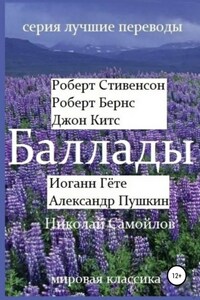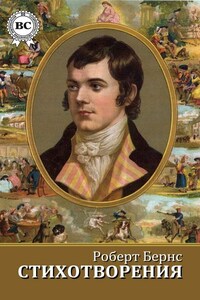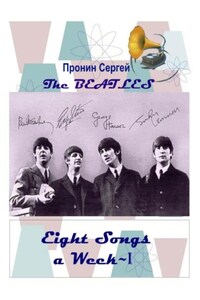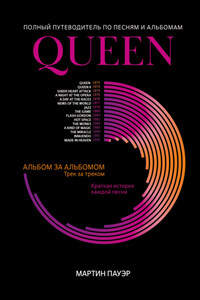Published by Collins
An imprint of HarperCollins Publishers
Westerhill Road
Bishopbriggs
Glasgow G64 2QT
www.harpercollins.co.uk
[email protected]
2nd edition 2016
© Collins 1947
Originally published in 1947 as Songs from Robert Burns
Collins® is a registered trademark of HarperCollins Publishers Ltd
All rights reserved under International and Pan-American Copyright Conventions. By payment of the required fees, you have been granted the non-exclusive, non-transferable right to access and read the text of this e-book on screen. No part of this text may be reproduced, transmitted, downloaded, decompiled, reverse engineered, or stored in or introduced into any information storage and retrieval system, in any form or by any means, whether electronic or mechanical, now known or hereafter invented, without the express written permission of HarperCollins.
The contents of this publication are believed correct at the time of printing. Nevertheless the publisher can accept no responsibility for errors or omissions, changes in the detail given or for any expense or loss thereby caused.
A catalogue record for this book is available from the British Library
Source ISBN: 9780008210588
Ebook Edition © OCTOBER 2016 ISBN 9780008222628
Version: 2016-10-21
HarperCollinsPublishers has made every reasonable effort to ensure that any picture content and written content in this ebook has been included or removed in accordance with the contractual and technological constraints in operation at the time of publication.
BURNS wrote his first love song, âHandsome Nell,â to Nellie Kirkpatrick with whom he worked at the harvest as a boy of fourteen. It is not to be compared for depth of passion and beauty of feeling with the love verses on Clarinda, which are among the most moving in the language, but Burns looked back upon it fondly as to his first love. For him that springtime of youth, when the soul still slumbered and the hounds of passion were as yet unleashed, was a dream of poetry and innocence.
He had pictured himself when young âas spending his manhood in labour, love-making, and poetry, and his old age as a sort of Edie Ochiltree.â But life, which should have been full, adventurous, rewarding, made sport of his dreams, and in the three-act drama of Ayrshire where he was born, Edinburgh where he was fêted, and Dumfries where he died, we see him goaded along upon a road that was pleasant enough in places, pleasant because of good company, enlivening conversation and fair women, but, for one of his temperament, a road that was full of pitfalls. His vigorous spirit was ranged against an environment which he found too narrow and circumscribing, too orderly and orthodox, too overburdened by its inheritance from the past. In the words of Stevenson, âhe had no genteel timidities in the conduct of his life.â
Did the period of his sojourn in Edinburgh, his philanderings with Clarinda and his travelling in the highlands with Willie Nichol bring irremediable hurt to his muse? Some would answer yes categorically. His habits of industry gave place to habits of pleasure, and his own opinion was that his mind was âenervated to an alarming degree by idleness and dissipation.â
Yet the paradox of how to reconcile the genius of Burns with the character of Burns need cause us no disquiet, for the genius in which we delight is independent of character, and we must learn to condone in the personality weaknesses which seem in painful discordance with the idealism of the indwelling spirit. So it was with Byron and Shelley and a hundred others. The imaginative temperament brought face to face with actualities is too frequently caught and fettered by the vices of the world, but genius has a permanence and universality which disarms criticism.
Burns himself would have been the first to agree with the verdict that he acted like a fool while he wrote like an angelâand not always like an angelâthat he covered his sensitivity with arrogance, and that his indiscretions were as much deliberate assertions of his independence, as they were natural impulses. All too clearly, as the wheel of life turned inexorably, he perceived that paradise is attained only by way of the chastening fire of purgatory, and there is no more heartrending picture than that of Burns as he appeared in the third act of the drama, conscious of his failing powers, yet helpless to recapture the fire and spirit of his muse. Towards the end he became more scrupulous as an artist, and some two months before his death he asked Thomson to send back all his manuscripts for revisal, saying that he would rather write five songs to his taste than twice that number otherwise.
There have been many evaluations of the work of the poet and there will be many more, but none will gainsay that his heart was attuned to melody and that in prompting him to hold fast to the tradition of Scots music, his native good sense saved him from the false elegance of his day. In the best of the lyrics we have the flower and perfection of his art. They, more than all else, have won for him an abiding place in the hearts of the Scottish people. They are eloquent of the soul from which they sprungâinstinct with passion, with tenderness and with that human gift of understanding which is synonymous with true greatness. It is the humanity of Burns, his great-heartedness, his proud independence, his strong democratic feeling, and his abiding faith in God, that endear him to his countrymen.














